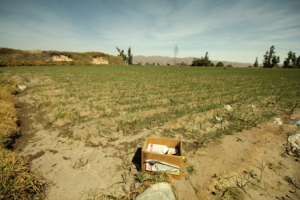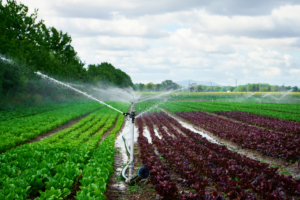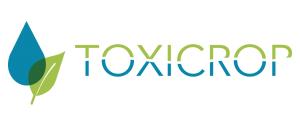Water, an important element for agriculture
Agriculture and livestock are responsible for 90% of worldwide freshwater consumption.
Water is an essential resource for life, however, only 0.5% of the total amount of water on the planet is suitable for human consumption. Agriculture and livestock are responsible for 90% of worldwide freshwater consumption.

Agriculture land in Arequipa, Peru, a semi-arid region. Source: TOXICROP project.
The increase in human population results in a greater demand for food, and consequently increased exploitation of resources, including water, for agriculture and livestock. The increased demand for freshwater to produce food is contributing to the depletion of this resource.
To tackle the scarcity of water, it is essential to implement efficient irrigation systems and improve agricultural practices. Reclaimed water is a promising source of water that could also be used in agriculture.

Irrigation system
Part of the water used for irrigation is returned to the environment as runoff and eventually reaches groundwater and surface water, contaminating them with fertilizers and pesticides. Loss of water quality due to agricultural runoff is an increasing problem in many areas of the world.
On the other hand, the use in agriculture or livestock of water with poor quality can impact crop production or animal welfare. Water contaminants can affect soil, making soil less fertile and sometimes toxic to plants. Pathogens can contribute to diseases in animals and humans. Another major risk concerns the contamination of crops and meat and the entry into the food chain of pollutants.
Improving water use and water quality are essential for the future of our food production.


